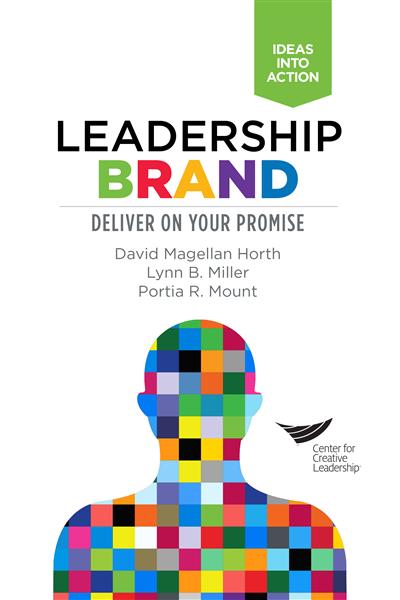Political Savvy & Leadership Effectiveness
Do you think of yourself as “politically savvy” at work?
Research has found that politically savvy people have better career prospects, are seen as more promotable, and are less likely to have derailed careers. People who bumble through the political realities — or avoid or ignore them — are missing opportunities, connections, and resources.
Organizational politics is a sometimes controversial and hotly debated topic. Many managers in large organizations lament the fact that they must even acknowledge its existence, much less engage in political behavior in order to get ahead. They question the ethics of behaving in ways that may feel inauthentic, manipulative, and ultimately self-serving. Some will ultimately embrace politics as a necessary evil, while others will refuse to play the game entirely, despite the likely negative impact on their careers.
While the term political skill, or political savvy, generally elicits more negative than positive perceptions, it isn’t inherently a bad thing.
The first step in overcoming any lack of political skill is to accept office politics as a natural, neutral part of work life. Politics is neither good nor bad. In fact, political skill is a necessity, and when used appropriately, leaders can use their political savvy to create positive outcomes for themselves and others.
We define political savvy as the ability to maximize and leverage relationships in order to achieve organizational, team, and individual goals.
Leaders with political savvy can use their political skills to successfully meet their organization’s leadership challenges and to improve the performance and productivity of their teams. Possessing political skill will enhance a leader’s effectiveness at work, improve their team’s performance, and improve their own chances of career advancement.
6 Characteristics Associated With Political Skills
How can you tell if a leader has political skills? The answer: if they appear not to have any such skills at all.
Behaviors that are genuine, authentic, straightforward, and effective are associated with political savvy. Leaders who are not politically skilled can come off as manipulative or self-serving.
Politically skilled leaders are masters of 6 characteristics:
- Social astuteness
- Interpersonal influence
- Networking ability
- Thinking before speaking
- Managing up
- Apparent sincerity
Leaders who have the behavioral flexibility to employ all 6 political skill practices will be more adept at maximizing and leveraging their relationships with others at work. If used properly, political savvy can help you maintain a positive image in your organization and can help drive your individual, team, and organization’s performance.
How to Be More Politically Savvy
Just like needing traditional managerial skills in areas such as budgeting, planning, coordinating, and the like, leaders do best when they also have political savvy. They especially need to be adept at making good impressions and influencing using the skill of persuasion.
6 Ways to Build Political Savvy
You can develop these behaviors and improve your political savvy by focusing on the following 6 skills:
1. Hone your powers of perception.
Socially astute managers are good at reading people’s non-verbal behaviors and can intuitively sense the motivations of others. By being more perceptive of yourself and others in social situations, you can improve your self-awareness and better interpret others’ behaviors.
2. Practice influence.
Those who are effective at exerting interpersonal influence on others build strong interpersonal relationships through establishing good rapport, communicating well, and getting others to like them. By becoming more comfortable with your interpersonal leadership power, you can improve your judgment and know when to assert yourself — resulting in more cooperative relationships. Skilled influencers are not always overtly political; they just play the political game fairly and effortlessly.
3. Learn to network effectively.
Leaders who possess a strong networking ability build friendships and beneficial working relationships by garnering support, negotiating, and managing conflict. Skilled networkers know when and how to leverage others to obtain the needed resources to accomplish both personal and organizational tasks. They’re also seen as willing to reciprocate and have a network perspective.
4. Think before you speak.
Leaders with political savvy have impulse control. They tend to choose their organizational battles wisely and size up situations before deciding how to present ideas to others. Managers who actually consider whether or not to voice a thought or a feeling, and who are thoughtful about the timing and presentation of what they have to say, are less likely to derail their careers.
5. Manage up — to a point.
Leaders need to be able to skillfully communicate with their bosses, higher-ups, and so on. But political savvy also involves maintaining good relationships with people at all levels in the organization. Our research shows that people who are especially skilled at “managing up” tend to put so much energy into their bosses’ needs that they neglect to lead their own teams — so balance here is key.
6. Be sincere.
Politically skilled individuals display high levels of integrity, authenticity, sincerity, and genuineness. They are — or appear to be — honest, open, and forthright, inspiring trust and confidence. So to sharpen your political savvy, be genuine with everyone in your organization. If you try too hard, your co-workers will see right through it. Be an authentic leader.

Figure out the leader you want to be — and how to build the brand that can get you there — with proven strategies and practical advice from CCL experts.
A Special Note for Women Leaders on Political Savvy
Office politics can be especially difficult for women.
Our women’s leadership development programs often contain a segment focused on organizational politics and the development of influencing skills. And through the years, we’ve heard women leaders tell us they struggle with the topic. They’re simply uncomfortable with the idea that political skill may be an important component of leadership.
Because of this perspective, they find it difficult to incorporate political behaviors into their repertoire. Office politics, some women say, feels inauthentic, much like networking does.
Researchers have documented gender-based differences in attitudes about office politics as well. Some have found that women perceive organizations as more political than men do. Others have found that women managers are more likely to report that engaging in political behavior is difficult and painful, whereas men tend to be more involved in political processes and regard them as a natural and normal part of organizational life.
We also conducted a study where we found that leaders who excelled in certain characteristics, including political savvy, received higher leader effectiveness ratings from their bosses than leaders who scored lower on these political skills.
Apparent sincerity was not found to be important for men, but women with higher levels of apparent sincerity were perceived to be more effective leaders than women with lower levels of apparent sincerity.
Put differently, as unfair as it may be, women are penalized when they exhibit low sincerity, whereas men are not.
A key reason for the varying perspectives and interpretations of behaviors may lie in the different ways women and men are socialized. Men tend to feel they are part of an “insiders club” where the rules of the game are made clear earlier (by other men). Women tend to feel more like “outsiders.” The rules women follow are more traditional and are part of a belief system that tells them if they work hard enough and have enough expertise, they will get ahead.
In her seminal 1994 study of women executives who have broken the glass ceiling, Lisa Mainiero found that many of the women she interviewed characterized themselves as “apolitical” and avoided playing politics. In reality, many of them were found to be very politically savvy, despite the fact that they did not view their behaviors as political. Mainiero goes on to say that political skill is vital for a woman’s career advancement, as they need political savvy to gain access to inside information and achieve the social capital needed to break the glass ceiling.
Despite significant progress, women today still are apt to find themselves in situations where opportunities for promotion, access to mentors and sponsors, and encouragement to take risks are absent. These unique barriers make it more critical than ever for women to embrace and develop political savvy.
Our recommendation to women leaders is to accept that organizational politics are a neutral, natural part of the workplace and that you can be politically savvy without playing games or taking advantage of other people. Instead, focus on growing your political skill in terms of the sincere use of your skills, behaviors, and qualities in order to be more effective. Intentionally work on your leadership brand and build your capacity to lead others in a sincere, authentic manner.
And that’s good advice on political skills that could apply to politics-wary men, as well.
Ready to Take the Next Step?
Help your team develop their political skill and political savvy — along with other skills necessary to lead effectively — with with a customized learning journey using our research-backed modules. Available leadership topics include Authentic Leadership, Emotional Intelligence, Influence & Selling Your Ideas, Listening to Understand, Self-Awareness, and more.









